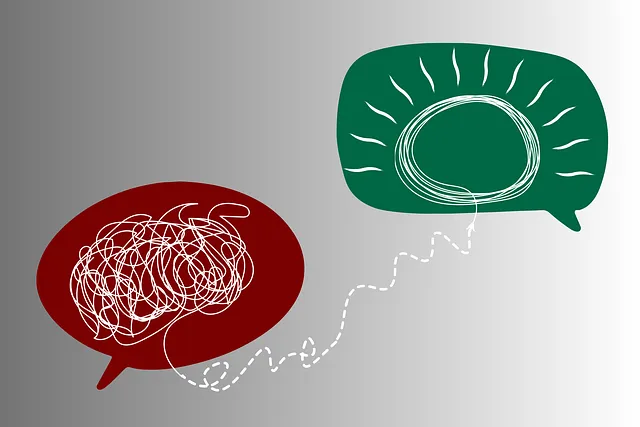Mental wellness group facilitation at Lakewood Kaiser Permanente creates safe spaces for peers to express emotions and support each other through evidence-based practices. Facilitators navigate sensitive topics, promote active participation, and encourage open dialogue using techniques like conflict resolution and confidence-boosting activities. These groups reduce stigma, enhance recovery, teach valuable skills for managing mental health, strengthen social connections, and foster a sense of belonging, all under the comprehensive Lakewood Kaiser Permanente mental health coverage. Effective communication, emotional intelligence, and self-care practices are paramount, ensuring a safe and inclusive environment that empowers individuals to manage stress, anxiety, and other challenges while improving their overall quality of life.
Mental wellness group facilitation plays a crucial role in supporting individuals navigating mental health challenges. This article explores effective techniques for facilitators, drawing insights from Lakewood Kaiser Permanente’s comprehensive mental health coverage. We’ll delve into strategies for creating safe spaces, fostering inclusive environments, and enhancing engagement. By understanding the unique dynamics of group settings, facilitators can revolutionize mental health support, enabling profound transformations in today’s digital era.
- Understanding Mental Wellness Group Facilitation
- The Role of Lakewood Kaiser Permanente in Mental Health Support
- Effective Communication Strategies for Group Facilitators
- Creating a Safe and Inclusive Group Environment
- Techniques to Enhance Engagement and Participation
Understanding Mental Wellness Group Facilitation

Mental wellness group facilitation is a specialized skill set that empowers individuals to support and guide their peers through shared experiences, fostering a safe space for emotional expression and growth. It’s more than just leading a discussion; it involves creating an environment where participants feel understood, valued, and motivated to engage in meaningful conversations about mental health. Facilitators play a crucial role in navigating sensitive topics, promoting active participation, and encouraging open dialogue, ultimately enhancing the group’s overall well-being.
In the context of Lakewood Kaiser Permanente mental health coverage, understanding these facilitation techniques is essential for maximizing the benefits of group therapy sessions. By employing strategies like conflict resolution techniques and confidence-boosting activities, facilitators can address common challenges faced by individuals with mental illness, fostering a supportive community that reduces stigma and encourages recovery. Through these methods, participants learn valuable skills to manage their mental health, enhance social connections, and develop a sense of belonging within the group.
The Role of Lakewood Kaiser Permanente in Mental Health Support

Lakewood Kaiser Permanente plays a pivotal role in providing comprehensive mental health support to its community. As a leading healthcare provider, they offer extensive mental health coverage, recognizing the growing importance of addressing psychological well-being alongside physical health. Their services encompass a wide range of evidence-based practices aimed at promoting mental wellness and fostering resilient individuals.
Through specialized programs and dedicated facilities, Lakewood Kaiser Permanente facilitates group facilitation techniques that prove highly effective in managing stress, anxiety, and other common mental health challenges. These sessions often incorporate conflict resolution techniques, encouraging open communication and healthy coping strategies. By integrating self-care practices and mind over matter principles, participants gain valuable tools to navigate life’s complexities, ultimately enhancing their overall resilience and quality of life.
Effective Communication Strategies for Group Facilitators

Effective communication is a cornerstone of successful group facilitation, especially when addressing mental wellness topics at institutions like Lakewood Kaiser Permanente offering mental health coverage. Group facilitators play a vital role in creating a safe and supportive environment where participants feel heard and respected. Active listening, a key communication strategy, involves paying undivided attention to each member’s thoughts and feelings, fostering an atmosphere of empathy and understanding. This technique encourages open dialogue, allowing individuals to process their experiences and emotions collectively.
Additionally, facilitators should cultivate emotional intelligence by recognizing and managing their own emotions while navigating sensitive discussions. Emotional intelligence enables professionals to respond sensitively to the group’s dynamics, ensuring everyone feels valued. Incorporating self-esteem improvement activities can also be beneficial, as these initiatives empower individuals to build confidence and share their stories more freely. Such approaches contribute to effective risk management planning for mental health professionals by fostering a positive and inclusive group setting.
Creating a Safe and Inclusive Group Environment

Creating a safe and inclusive group environment is paramount for effective mental wellness facilitation. This begins with establishing ground rules that emphasize respect, confidentiality, and active listening. As a facilitator, it’s crucial to model these behaviors, ensuring every member feels heard and valued. Incorporating self-care practices into the group dynamic can further enhance this safety net; encouraging participants to share their personal coping mechanisms normalizes self-awareness and promotes peer support.
At Lakewood Kaiser Permanente, mental health coverage is tailored to meet diverse needs. This includes recognizing and addressing cultural competencies within healthcare provider training, ensuring staff are equipped to offer sensitive, inclusive care. By fostering an environment that encourages open communication strategies, facilitators can help group members navigate complex emotions and experiences, ultimately strengthening their support systems and self-efficacy.
Techniques to Enhance Engagement and Participation

In facilitating mental wellness groups, engaging participants and encouraging active involvement are key to creating a supportive environment for growth and healing. One effective strategy is incorporating interactive Self-Awareness Exercises. These can include guided meditations or reflective activities designed to help individuals explore their thoughts, emotions, and behaviors. By fostering self-reflection, facilitators enable members to identify personal challenges and strengths, thereby increasing their investment in the group’s collective journey towards mental wellness.
Additionally, promoting open discussion through Stress Management techniques and encouraging positive thinking can significantly enhance participation. Techniques such as deep breathing exercises or mindfulness practices not only help participants manage stress in real-time but also cultivate a sense of calm and focus during group interactions. This, in turn, creates a safe space for sharing experiences, offering support, and learning from one another, ultimately strengthening the therapeutic benefits of the Lakewood Kaiser Permanente mental health coverage-supported group sessions.
Mental wellness group facilitation plays a pivotal role in supporting individuals through collaborative healing. As demonstrated by organizations like Lakewood Kaiser Permanente, offering comprehensive mental health coverage can greatly impact community well-being. By employing effective communication strategies, fostering safe and inclusive environments, and utilizing engagement techniques, facilitators can create supportive spaces where participants thrive. This article has explored these key aspects, providing insights into how group facilitation techniques enhance mental wellness support, ultimately contributing to improved individual and community resilience.




